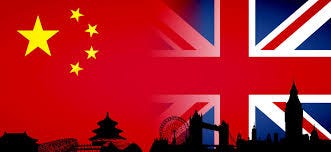What more can it possibly take to lift the veil obscuring China’s intentions in Britain? From what looks suspiciously like sabotage of British industry to wholesale spying and open intimidation of people living in Britain, to attempts to restrict free speech, the PRC has flaunted its contempt for the UK.
It is rather unlikely that China has a master plan for undermining Britain but the Chinese Communist Party (CCP) is rarely shy in exploiting the weakness of others for its own advantage. Beijing sees Britain as rather weak nation with a highly confused approach to the PRC, making it ripe for manipulation.
There is every chance that British Prime Minister Keir Starmer will reinforce this impression when he shortly arrives in Beijing on a goodwill mission. That was clearly the CCPs takeaway from a string of other senior ministerial visits in recent weeks. They arrived as supplicants and came away claiming to have achieved a great deal. But what does this mean? The answer is studiously modest promises of investment, most of which will never materialize and plenty of trade benefits…for China.
The Prime Minister maintains that he is guided by pragmaticism, if that is so let him carefully examine the actual benefits of Chinese investment in Britain that he is so keen to secure.
First port of call in this examination would be to understand the determination of British Steel’s Chinese owners to shut down Britain’s last remaining raw steel producer. The government may be unclear about China’s motives but the employees of British Steel were under no illusions which is why they took the unprecedented step of barring their Chinese managers from having access to parts of their plant as they feared the possibility of sabotage.
Jingye, the Chinese company which took over British Steel less than five years ago, promised all manner of things, but has delivered very little. It clearly thought that given the infamously supine attitude towards Chinese investment, it would be easy to get the British taxpayer to stump up the cash for modernizing the Sunderland plant.
At the time of its purchase Jingye made no secret that part of its motivation was to contribute towards China’s controversial Belt and Road programme designed to spread Beijing’s economic influence.
When Chinese companies purchased the heritage MG car brand, the first Chinese owner quickly failed while SAIC, its present owner, raised naïve hopes that it would secure the continuation of car production in the UK. The reality is that MGs are now entirely made in China, the remaining British activity is a small R&D unit. That leaves SAIC free to concentrate on its main business of shipping cars from China to the UK.
They have joined the flood of Chinese made electric vehicles which are allowed in tax-free. These cars come equipped with an impressive array of equipment for guidance and control purposes, sufficiently sophisticated for the Ministry of Defense to have belatedly noticed that the presence of these cars near sensitive military facilities opens the door to spying. Controls have now been imposed.
So that’s one door shut, while another door remains open as the bulk of British police forces have purchased Chinese made drones for surveillance purposes, allowing the fine folk in Beijing to share a sea of information about British security.
Mr. Starmer is keen for more sharing, although he does not put it that way. Maybe he plans to fling other doors wide open, say by boosting investments in Britain’s nuclear industry, or maybe wind farms or telecommunications. Current Chinese investment in all these key strategic industries is relatively modest in monetary terms but gives the CCP considerable scope for influence.
Apologists for the dictatorship assert that the Chinese companies operating here come from the private sector and therefore have nothing to do with politics. The reality is that all Chinese companies of any significant size operate under the auspices of the CCP which allocates a chairman to preside over them and has a group of cadres in place to ensure that all major decisions accord with party views. In fact under Chinese leader Xi Jinping the grip on the private sector has intensified.
In his first year in office Mr. Xi made it clear that he was unsatisfied by the CCP’s lack of control over the private sector and stressed the need to ‘carry out the party’s work and enhance the party’s influence.’ Companies are explicitly expected to follow the party’s goals.
This means that the level of the CCP presence in Britain has been steadily growing but it took the British Steel farrago to bring it more clearly into public view. Most people were unaware that China is a key shareholder in Heathrow airport, that it supplies the bulk of Britain’s surveillance cameras and that China has infiltrated British universities both openly, with the visible presence of its Confucious Institutes, and covertly by stealing British knowhow and R&D from key academic research projects.
The height of British naivety in relations with China was reached by the Cameron government inaugurating a ‘Golden Era’ of relations culminating in Party leader Xi’s state visit to Britain in 2015. What is extraordinary is that even after Mr. Cameron left office his successor Terresa May gave the go ahead for the Chinese company Huawei to play a major role in Britain’s 5G telecommunications network.
That plan was eventually thwarted but the Starmer government looks as though it is determined to learn nothing form recent history as it embarks on what it calls a ‘reset’ of relations. Beijing seems to be expecting great things from this. As for British interests, they will no doubt be reflected in the new mega embassy China is proposing to build in London with secret underground facilities having potential to tap into the City of London’s key telecommunications infrastructure which, by staggering coincidence, passes directly below the new embassy site.



